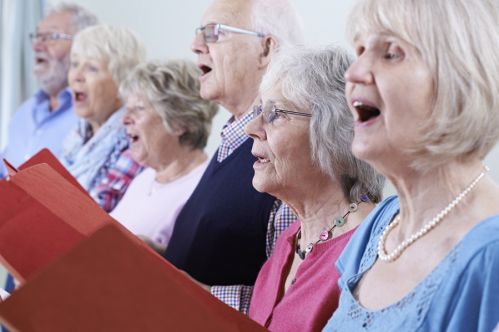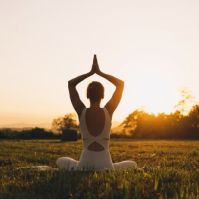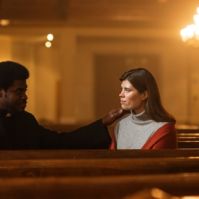
As large chunks of the country are hunkering down to slow the spread of the coronavirus, many churches in the United States are bucking health mandates and common sense in favor of services and business as usual. With several stories of groups catching COVID-19 by way of religious gatherings, churches are poised to take their place along with Spring Break booze-festivals as “super-spreading events.”
Coronavirus Doesn’t Care About Intentions
Seattle, Washington; the area where the first confirmed diagnosis of COVID-19 in the United States occurred, as well as many of the first deaths from it. Just a quick trip north of here is the quiet town of Mount Vernon, home of the Skagit Valley Chorale.
In early March, Skagit County hadn’t reported any cases of coronavirus, and all businesses and schools were still open. The eventual state-wide prohibition on gatherings hadn’t yet been put in place, though such action was highly discouraged. A group of about 60 singers showed up for choir rehearsals at the Mount Vernon Presbyterian Church.
These folks had watched the news and were aware of the possible risks, but all agreed that if precautions were taken, they would meet and practice anyway. None of the members felt ill. Hand sanitizer was issued at the door, and singers spaced themselves a couple feet apart. They wanted to praise and worship together, and they followed precautionary recommendations such as forgoing the hugs and handshakes that normally brighten up their sessions.
About 3 weeks later, 45 of the 60 have either been diagnosed with COVID-19 or are strongly presenting symptoms. At this point, 3 have been hospitalized and 2 have died.
Despite the group's precautions and best intentions, the virus spread wildly.
Churches Still Hold Services
Many of the states that have been hit hard by coronavirus have followed guidelines set forth by medical and scientific professionals, issuing orders that folks should avoid gatherings or going out in public for non-essential reasons. This should mean that physical church services be put on hold for the time being.
However, when it came time for Michigan governor Gretchen Whitmer to set the course of action for her state, she built a massive flaw into her executive order; houses of worship could still hold large gatherings free of the penalties regularly issued for such activity. “People have a God-given right to assemble and worship,” opined Michigan House Speaker Lee Chatfield [R] in agreement to the exception. “That right is secured by both the United States and Michigan Constitution.”
Indeed many religious people share this view, including several members of the ULC. Certainly we all have the right to worship, but as we are seeing with citizens both religious and not, our right to assembly can legally be suspended in the interest of the greater good. Nothing about your right to worship says it cannot be done from home, and nothing about your religion says it must always be observed publicly.
Inviting the Risk
The Life Tabernacle Church in Louisiana decided to put 1,824 worshippers at risk by hosting them at a Sunday-morning service. They went as far as bringing in folks from all around the area in 26 busses. To make matters worse, Pastor Tony Spell extended a special invitation to those suffering from coronavirus, claiming they would be cured by him “laying hands on them and praying for them and depending on God to heal their body.”
Many health and state officials are predicting that Louisiana is on the verge of becoming a new major hot-spot for COVID-19 and Pastor Spell has essentially assembled a massive powder keg ready to explode on the community. His plan involves touching those affecting and spreading it to the healthy so that they become carriers. While he certainly wouldn’t phrase it that way, that is exactly what he is doing.
The Case for the Online Church
While we’ve focused thus far on some examples of church activity putting the nation at a greater health risk, some churches have done the right thing and suspended physical services, opting instead for online sermons and fellowship.
Pastor Kevin Goss of La Grande Nazarene in Oregon has decided to tend to his flock’s health and spiritual needs by way of YouTube. “We’re being very intentional in using language that ‘Church is not cancelled, it’s gone digital.’” He’s recently started uploading video streams of his sermons for his 130ish parishioners.
The nearby Faith Center Foursquare Church has taken some slightly different steps. Hoping to still have a shared faith experience among congregation members, they have recorded services that can be played at homes where small groups would gather to watch them together. This complies with Oregon’s current guidelines and does a good deal to lower the risk of transmissions. However, as we’ve seen with the Skagit Valley Chorale, sometimes even careful churches can still fuel the spread.
“But it’s My Right!”
Despite these stories, precautionary guidelines from President Trump, and warnings from healthcare professionals, some have resorted to what amounts to plugging their ears and shutting their eyes to the danger, proclaiming in spirit that physically attending church in a large group is their right, and any measure that infringes upon it is a violation and discrimination.
Look - It’s not discrimination because religious people are not asking for an equal right here and being denied it. They are demanding special rights to the detriment of national health and with disregard for life. Essentially, their claim that their imagined right to religious congregation is being infringed upon causes them to infringe upon the actual basic rights of others’ safety; their actions are defined by hypocrisy.
If believers were only putting themselves at risk of harm, that would be one thing, but their disregard of common sense could easily make them carriers that transmit coronavirus to thousands of others that didn’t make the same stupid choice to willingly and unneccesarily expose themselves to the threat.



